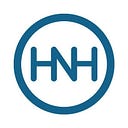Art Exhibition using Drugs launches in Lisbon
Activist Graham de Barra sourced drugs that were offered on the street and created art to be exhibited on the walls of the gallery called Casa das Drogas
Lisbon, Portugal — 30th April 2021 — Casa das Drogas is the most recent art exhibition to launch in Av. da Liberdade that takes on a new form; all the artwork is made using drugs offered on the streets of the Baixa area. The concept designed by Activist Graham de Barra is to demonstrate on the 50th anniversary of prohibition that drugs are more available now than ever before. Counterfeit drugs are sold openly on the streets of Lisbon and regulation over this illicit market is the best solution to prevent harm. The Global illegal drug industry is worth an estimated 500 Billion Euro annually and taxes raised could be used to help businesses and communities affected by the COVID-19 pandemic.
“Nobody is selling fake alcohol on the streets of Lisbon where there are licensed premises that meet the market demand, who pay taxes and offer protections to both consumers and employees. Yet bay leaf extract is deceptively sold as hash to tourists, baking soda as cocaine and cinnamon as heroin. Without adequate regulation actively put in place by the Government there is currently no State entity enforcing quality standards.”
2020 was a record year for drug seizures with ports commonly used in Portugal and its islands. There has already been as much cocaine seized so far in 2021 by the Maritime Analysis and Operations Centre in Lisbon with 20 tons compared to 23 tons in the whole of 2020. The largest single seizure of cocaine in the world ever was intercepted by police in Hamburg earlier this year, with a street value of 4 Billion Euro. The EMCDDA reported in 2018 that 4.3 million people in the EU have tried cocaine at least once. There are no regulations in place that would protect consumers and workers in this industry, which increasingly uses children to distribute drugs over popular messenger apps including Instagram and Snapchat. People are commonly taken captive against their will in drug factories and made into slaves, contrary to the European Convention on Human Rights.
“People everywhere are suffering and as a matter of survival they will look to an industry that provides for them and their family. The effect of this can already be seen in countries in South America and West Africa where cartels have become more powerful than the Governments themselves. If we don’t make a stand for human rights now then who will when it’s too late? We are soon reaching the point of no return with enormous amounts of wealth transferring into the hands of drug kingpins who are anonymous with the use of emerging technology lurking behind the scenes out of sight”
According to a new EUROPOL report published in April 2021, 40% of organised crime in Europe is involved in the drugs trade. The threat posed to Member States is at an all-time high with gang-related violence increasing. Corruption undermines the rule of law, weakens institutions, and undermines economic development.
The exhibition features original works of art designed in Lisbon by Graham de Barra, none of which will be available for sale. Under Portugal’s decriminalisation policy introduced in 2001, the personal possession of small quantities of drugs is not a criminal offence but the sale of drugs is. Non Fungible Tokens (NFTs) represented of the works will be auctioned and proceeds donated to the Julian Assange legal fund.
Casa das Drogas will open everyday for the month of May and remain on display for the rest of the summer, located in Avenida da Liberdade 9 between the hours of 14:00 until 20:00
The entire collection can be found on OpenSea https://opensea.io/collection/casa-das-drogas
More information about the artist can be found on www.grahamdebarra.com
@Gramsdb
